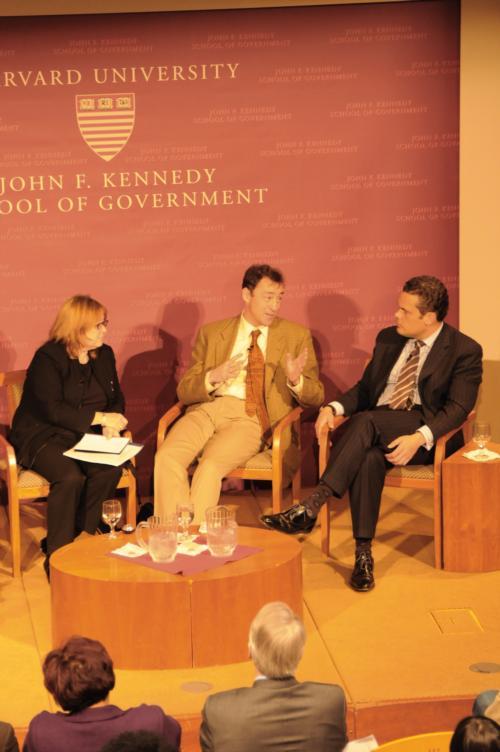
News
Pro-Palestine Encampment Represents First Major Test for Harvard President Alan Garber

News
Israeli PM Benjamin Netanyahu Condemns Antisemitism at U.S. Colleges Amid Encampment at Harvard

News
‘A Joke’: Nikole Hannah-Jones Says Harvard Should Spend More on Legacy of Slavery Initiative

News
Massachusetts ACLU Demands Harvard Reinstate PSC in Letter

News
LIVE UPDATES: Pro-Palestine Protesters Begin Encampment in Harvard Yard
Panel Evaluates U.N. as Peacekeepers

Three United Nations employees cast a critical but hopeful eye at the peacekeeping organization during a panel discussion titled “Peacekeeping: Can the U.N. Meet the Challenge?” last night at the Institute of Politics.
Michael R. Gaouette ’90, a team leader for the U.N. in Darfur; David J. Harland, a member of the U.N. Department of Peacekeeping Operations; and Susana Malcorra, an under-secretary-general in field support, focused on the difficulties the U.N. faces when it tries to preserve order after peace settlements are reached.
“Peackeeping uncovers some of the most important international problems of our time,” said moderator Jacqueline Bhabha, the director of the University’s Committee on Human Rights Studies.
Malcorra called for a reevaluation of the current U.N. intervention model because of new challenges.
“More and more so, the U.N. has become a target in itself,” she said.
Harland and Gaouette presented mixed viewpoints on the efficacy of the international organization, especially the Security Council.
“Clarity is not the greatest of its virtues,” Harland said.
Gaouette, meanwhile, reflected on his own experience with the U.N.’s limited success in Darfur.
“We just don’t have anywhere near the tools required to do this job,” he said.
The event concluded with audience questions to the panel. Michael J. Brower, who holds a Ph.D. from the Graduate School of Arts and Sciences, praised the work of the panelists.
“You are doing God’s work in the world of the devil,” he said before turning his attention to the audience members, asking what they could do to make the United States a less militaristic force in the world.
Jessica K. Reitz, a student at the Harvard Kennedy School who previously worked in Sudan, said she found the event informative and relevant to her experience.
“I really appreciated the realistic view on the challenges of peacekeeping,” she said.
Malcorra said she was pleased with the success of the event.
“At the end of the day, we are an organization that is alive and is rethinking itself in a constant manner,” she said. “Engaging in a dialogue with the broader society is critical.”
—Staff writer Evan T. R. Rosenman can be reached at erosenm@fas.harvard.edu.
Want to keep up with breaking news? Subscribe to our email newsletter.
